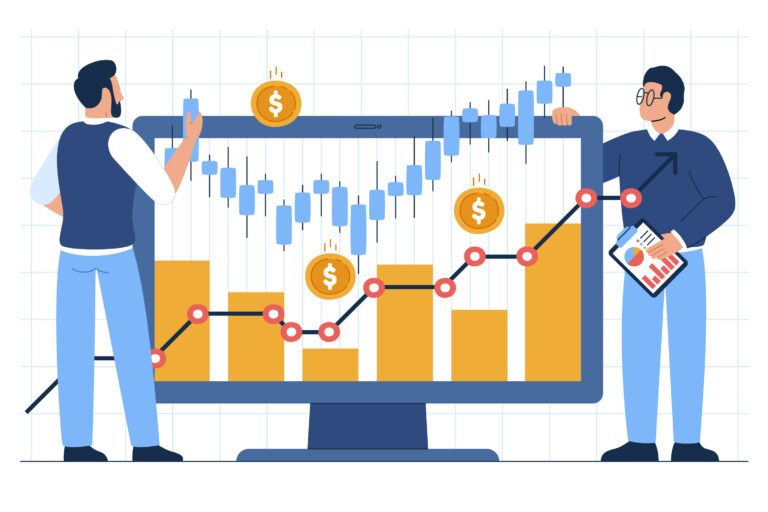
Artificial Intelligence in the Stock Market: How AI is Shaping the Future of Trading
The financial markets have always been shaped by information, speed, and timing. In today’s digital age, Artificial Intelligence (AI) is emerging as a transformative force—reshaping the way stock market trading and investing are executed. From lightning-fast trade execution to analyzing unstructured data, AI is becoming the backbone of smarter, data-driven decision-making.
What Is AI in Stock Market Trading?
Artificial Intelligence in the stock market refers to the application of technologies such as machine learning, natural language processing (NLP), and data analytics to financial data. These tools enable computers to detect patterns, learn from vast historical datasets, and make predictions or decisions faster and more accurately than traditional human-led approaches.
Rather than relying solely on human intuition or static formulas, AI models process dynamic data—such as stock price movements, financial reports, economic indicators, and even news or social media sentiment—to provide actionable insights.
Key Areas Where AI Is Making a Difference
1. Algorithmic Trading (Algo Trading)
One of the most prominent uses of AI in the stock market is algorithmic trading. AI-powered systems are designed to scan real-time market data, detect trading opportunities, and execute trades automatically. This automation reduces human error, eliminates emotional bias, and allows traders to respond to micro-movements in the market within milliseconds—something human traders simply can’t match.
2. Predictive Analytics
The predictive capabilities of AI are what truly set it apart. AI algorithms can learn from years of stock price behavior, market cycles, and macroeconomic events to identify potential patterns. This allows investors to make informed predictions about stock performance, identify trends early, and adjust their strategies in advance of major market shifts.
3. Customized Investment Portfolios
AI doesn’t just work for large institutions. Modern AI platforms can assess an individual investor’s goals, risk tolerance, and financial profile to craft personalized portfolios. This enhances diversification, tailors asset allocation, and allows retail investors to manage their wealth more effectively—just like a robo-advisor, but smarter and more adaptive.
Challenges to Consider
While AI offers substantial benefits, it’s not without its risks. Markets are influenced by unpredictable events—also known as black swan events—which can’t always be forecasted by data. Overdependence on AI without human oversight can result in significant losses if the algorithms fail to adapt in real-time. Moreover, AI systems require clean, relevant, and unbiased data to function optimally.
Conclusion
AI is revolutionizing the way we approach stock trading and investment. It brings speed, precision, and powerful predictive capabilities to the financial world. However, it is most effective when used as a tool to enhance human decision-making—not replace it. By understanding the strengths and limitations of AI, investors can better prepare for the future of intelligent trading.
